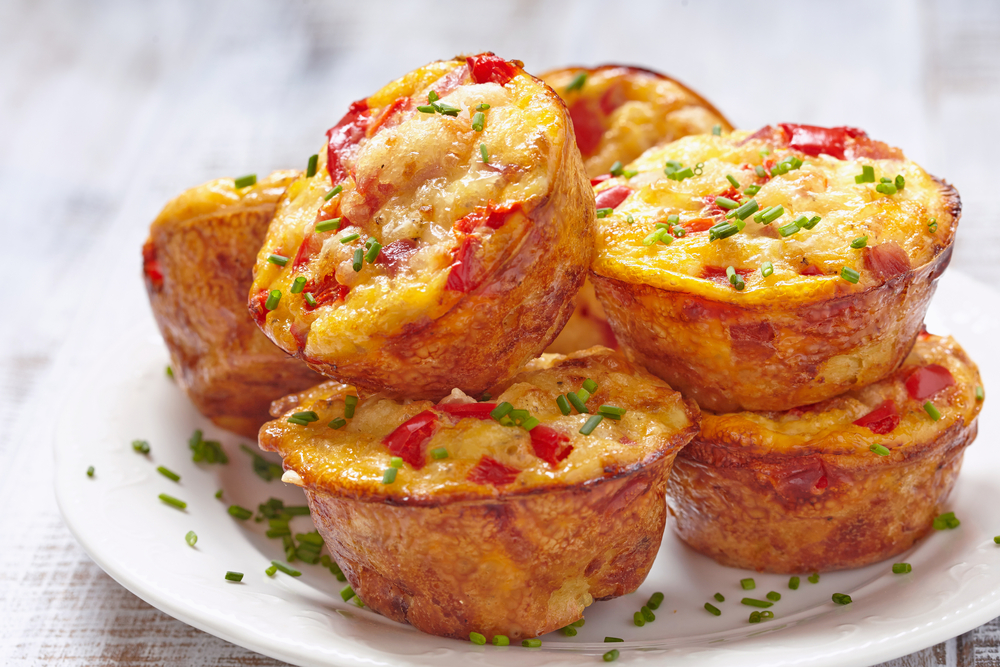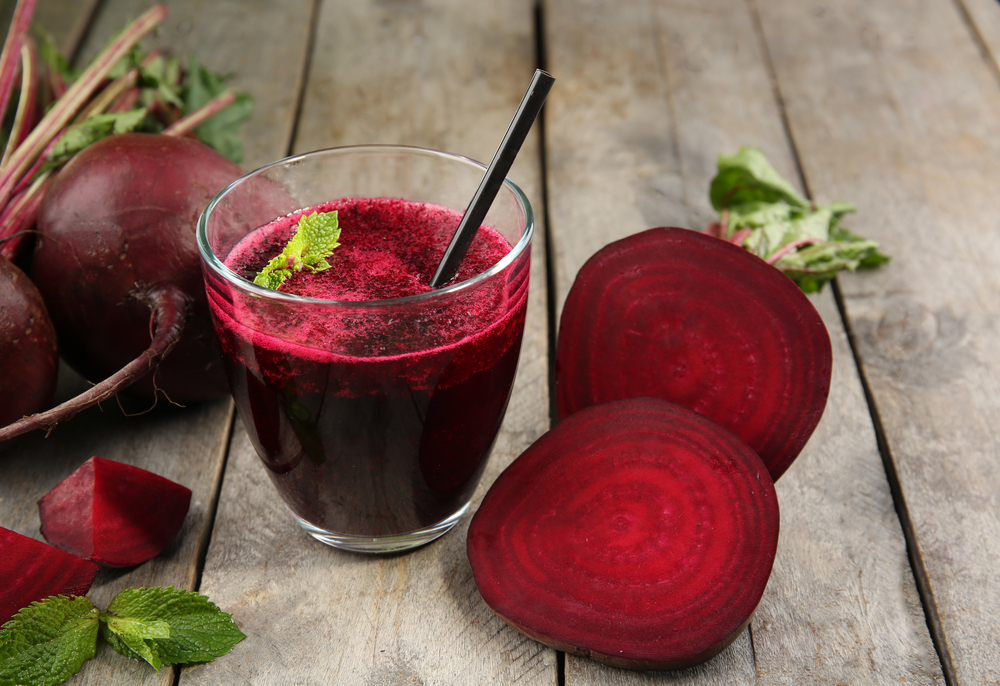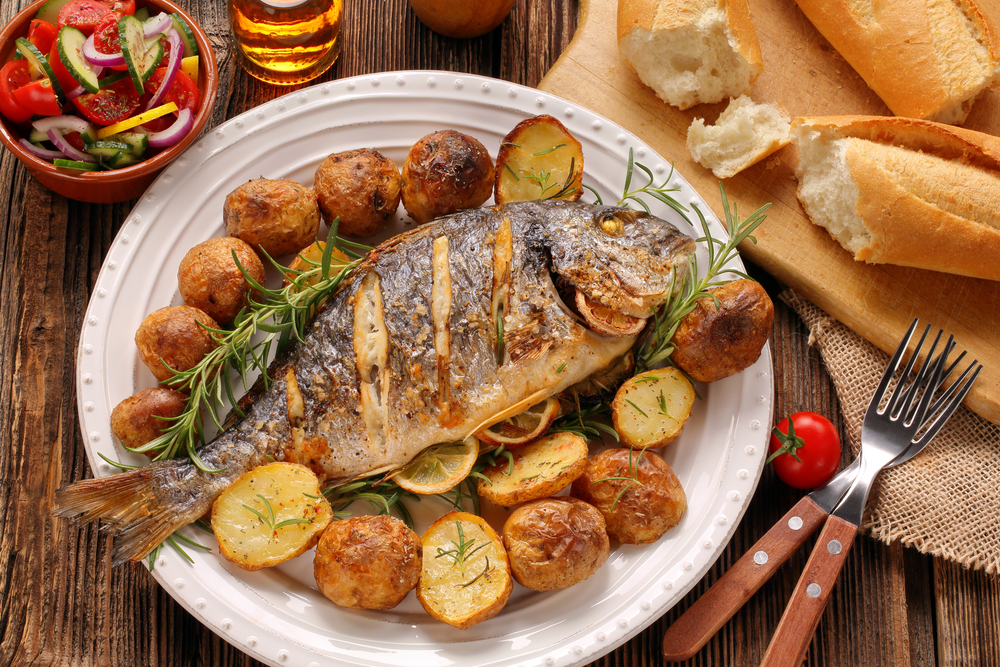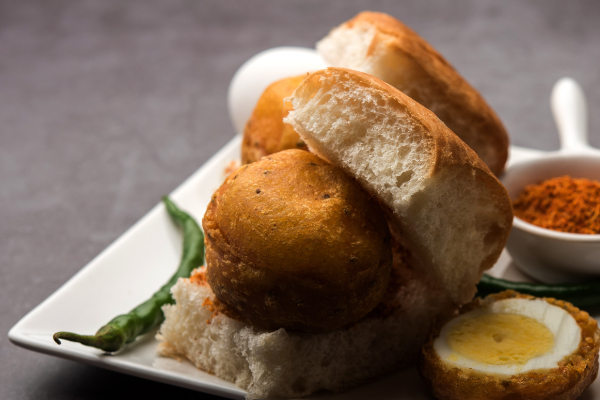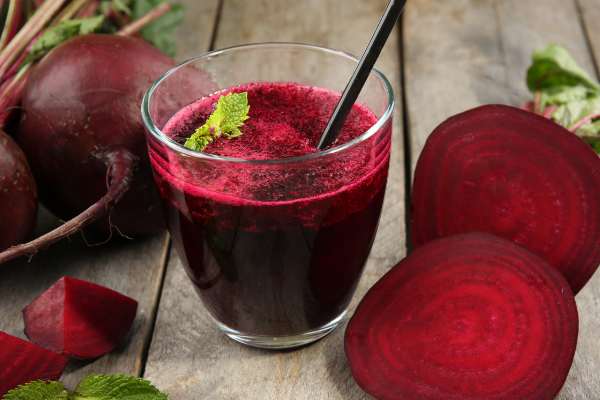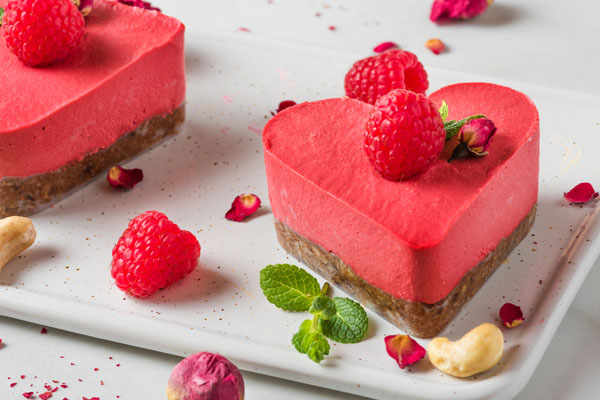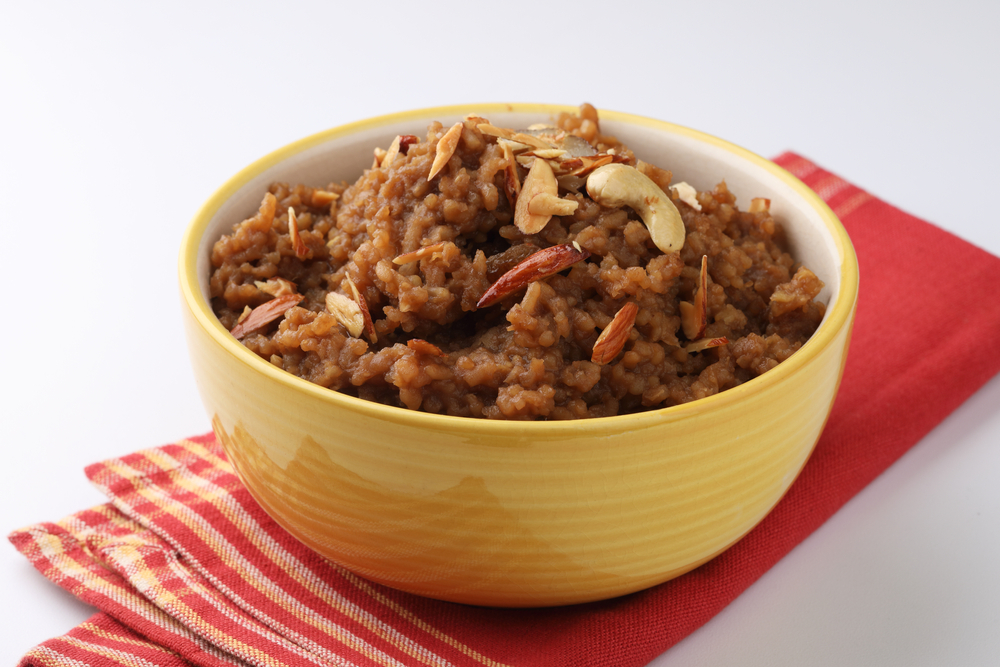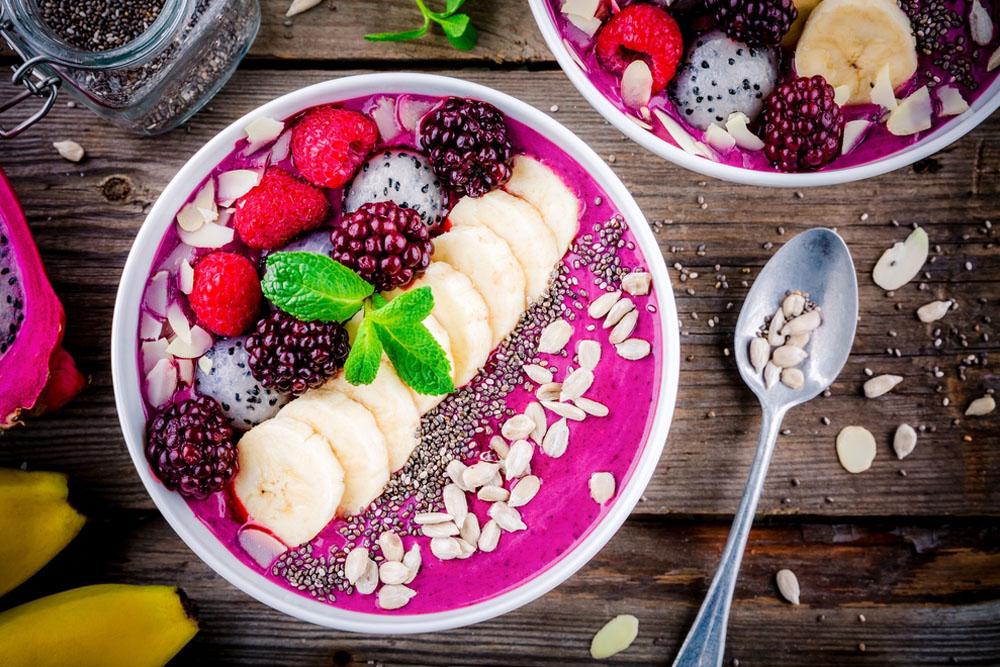Ultra explores the harvest festivals of India
Try these special harvest feasts at home
In the month of January, around the 15th various states in India enjoy the first harvest. This is celebrated with a festivity and special dishes are made as offering to the gods.
Ultra explores the regional delicacies for you to try and enjoy the harvest traditions across India.
Makara Sankranti
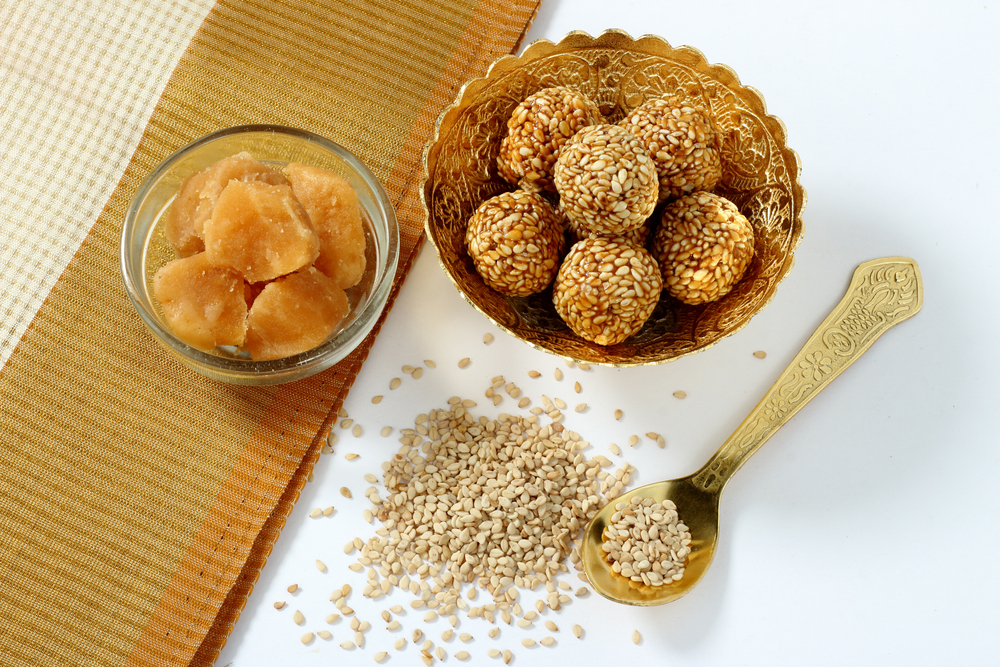
Image credit: Shutterstock Images.
From the Kumbh Mela in Uttar Pradesh to the kite flying, folk dances and fervent celebrations across Andhra, Telangana and Karnataka; sankranti festivities are enjoyed over three days.
Till and jaggery are the two important ingredients that are used to make sweets as offering to the gods and enjoyed as delicacie
INGREDIENTS
Makes:12-15
10 MINS
20 MINS
30 MINS
10 MINS
20 MINS
30 MINS
Till Laddu Ingredients
50 Gms seasme seeds (white or black)
100 Gms jaggery (powdered)
¼ Cup desiccated coconut
¼ Cup peanuts (raw)
¼ Tsp cardamom powder
Water
METHOD
1. Dry roast the till till golden on a low flame and set aside
2. Dry roast the desiccated coconut to a gloden brown and add to the till to cool
3. Dry roast the peanuts and crush to rough pieces
4. Melt the jaggery with a few tablespoons of water and make a caramel to the consistency where it forms a soft ball when dropped in water.
5. Mix it into the sesame, coconut and peanuts.
6. Allow to cool a little and make balls while still warm. Store in an airtight container and enjoy.
Puran Poli or Holige or Obattu
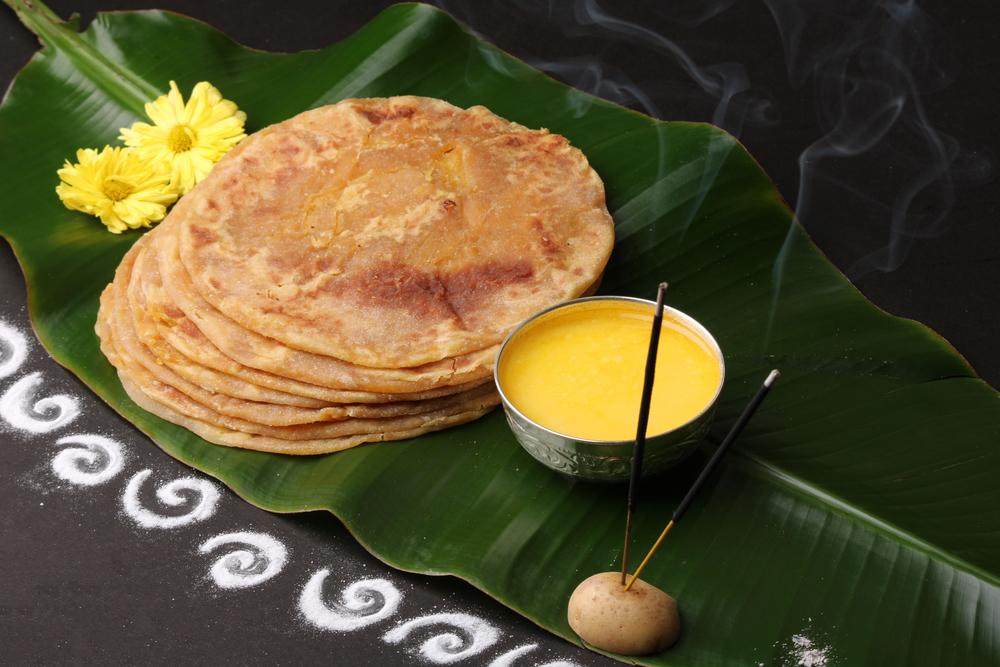
Image credit: Shutterstock Images.
This is the most significant dish of the southern states of India. Made in different forms and enjoyed across Maharashtra, Andhra and Telangana, Karnataka and Tamil Nadu. A decadent sweet dish made with lentils, jaggery and ghee.
INGREDIENTS
Makes:8-10
10 MINS
1 HR
1 HR
2 HRS 10 MINS
10 MINS
1 HR
1 HR
2 HRS 10 MINS
Ingredients for Puran:
1 Cup channa daal
1 Cup jaggery
1 Tbsp ghee
2 ½ Cups water
1 Tsp cardamom powder
¼ Tsp turmeric powder
1 Tsp oil
Ingredients for the Poli:
1 ½ Cup wheat flour
¾ Cup maida
¼ Tsp turmeric
¼ Tsp salt
1 Tbsp milk
2 Tbsp oil
Ghee
METHOD
1. Soak the channa daal for one hour, rinse and cook with turmeric and oil till soft in your Ultra Pressure Cooker.
2. Drain the water and mash the daal well. Add this back to your Ultra Pressure Cooker, add the jaggery and cook till the mixture becomes dry.
3. Add cardamom and ghee and let it cool a little.
4. Transfer to a plate and make equal sized balls. (The size of a small orange)
5. While the channa is soaking, make a soft dough with wheat flour, maida, turmeric, salt and milk. Brush with oil, cover and let it rest till the puran is made.
6. Make the poli by stuffing the puran in the dough and rolling out to thick or thin discs.
7. Obattu is made thicker and poli is made wafer thin.
8. Add ghee to each poli after it is cooked and enjoy with a generous dollop of ghee.
Baisakhi
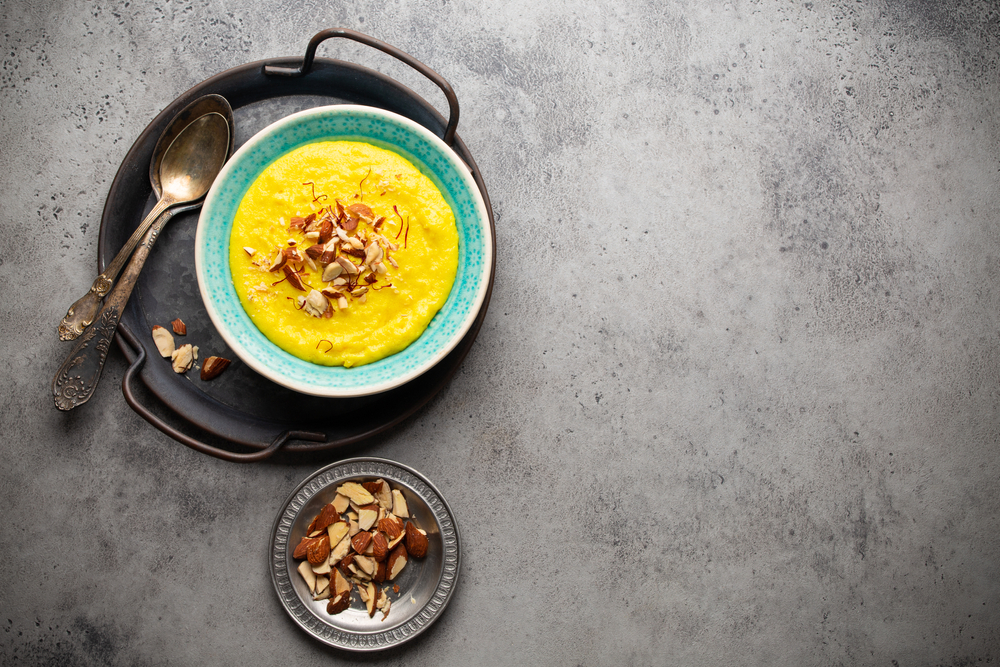
Image credit: Shutterstock Images.
Punjab comes alive at Baisakhi to the sounds of the Dhol, the colourful costumes and the dancing, the celebration and feasts.
Phirni or kheer is a must-have in Punjabi households to mark the celebration of harvest.
It’s a simple dessert made with a few ingredients but rich and decadent and fit for a feast.
INGREDIENTS
Serves: 4-6
5 MINS
20 MINS
10 MINS
25 MINS
5 MINS
20 MINS
10 MINS
25 MINS
4 Tbs of basmati rice
8 Tbs of sugar
1 Litre milk
1 Tsp saffron
1 Tbsp pistachio slivers
1 Tbsp almond slivers
1 Tsp rose water (optional)
METHOD
1. Wash and soak the rice for 10 minutes. Discard the water, add a few tsps. Of milk and grind coarsely in your Ultra Mixer Grinder.
2. Add ½ cup of the milk to the ground rice and set aside.
3. Bring the rest of the milk to a boil and cook for 10 minutes.
4. Add half the saffron strands to the milk.
5. Add the rice and cook on a slow flame for 10 minutes or until it thickens to a dosa batter consistency.
6. Transfer to soaked earthern bowls and garnish with the remaining saffron, almonds and pistachio slivers.
7. Serve chilled.
Basant Panchami
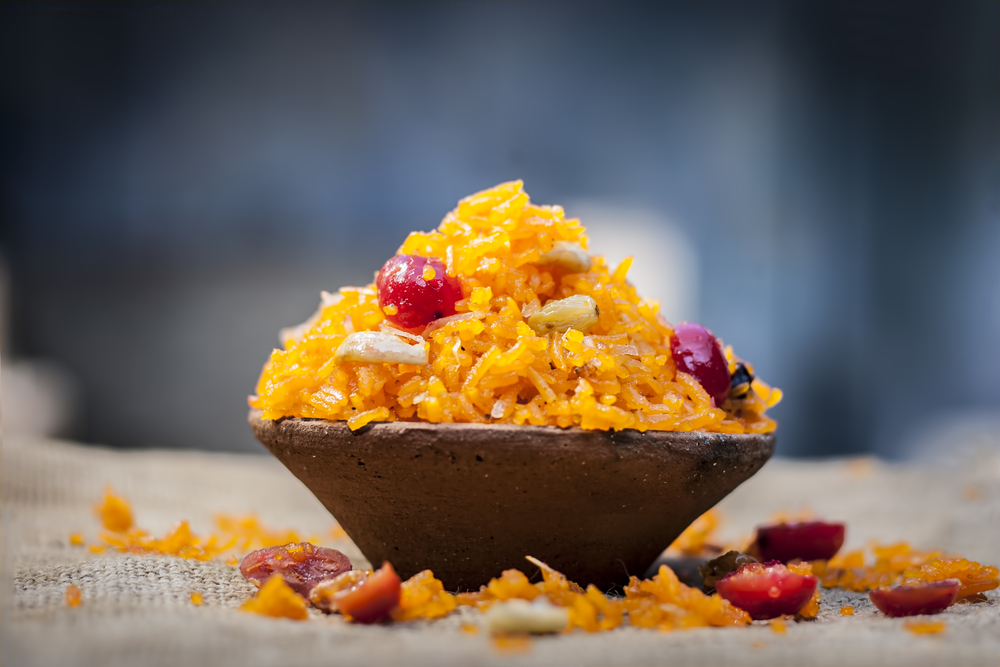
Image credit: Shutterstock Images.
INGREDIENTS
Serves: 2-4
5 MINS
15 MINS
20 MINS
5 MINS
15 MINS
20 MINS
½ Cup basmati rice
¾ Cup water
½ Cup sugar
½ Tsp saffron
2 Tbsp chopped nuts Cashews, pistachio, almonds)
1 Tbsp raisins
1 Tbsp coconut slivers
2 Tbsp ghee
METHOD
1. Soak saffron in warm water.
2. Cook the rice on a low flame till done. Allow to cool a little.
3. In a saucepan, add ghee, fry the nuts and coconut with raisins.
4. Add the sugar.
5. Add the warm rice and gently stir and cook till sugar dissolves.
6. Serve warm with ghee.
Boghali bihu
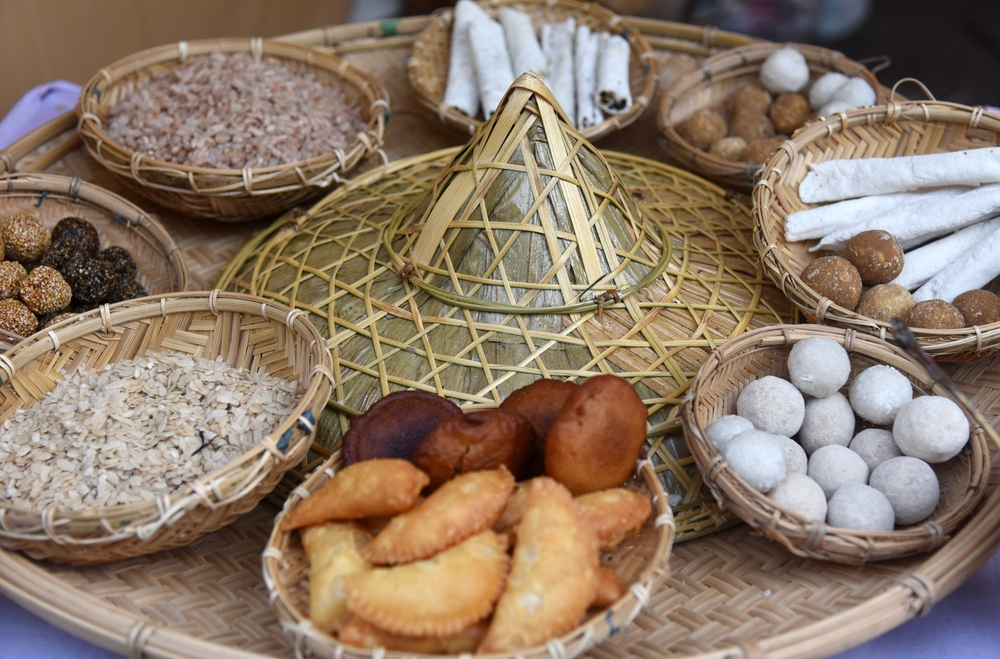
Image credit: Shutterstock Images.
Every year in January, the assamese women wear Mukhlas and perform folk dance and celebrate Bihu one day before the harvest festival. Uruka the communal feast follows the cultural performances. One dish that must feature in the feast is Till Pitha.
INGREDIENTS
Serves: 8-10
5 MINS
3 HRS
20 MINS
3 HRS 20 MINS
5 MINS
3 HRS
20 MINS
3 HR 20 MINS
3 Cups sticky rice
1 Cup black sesame seeds
2 Cups jaggery
¼ Tsp fennel
1 Tsp dry coconut grated
METHOD
1. Wash, dry and coarsely pound the till seeds. You can also pulse in your Ultra Mixer Grinder.
2. Add jaggery, coconut and fennel and set aside
3. Wash rice thoroughly and soak for 3 hours.
4. Drain, remove excess moisture by spreading over a towel and grind to a fine powder. Chill in fridge for a few minutes.
5. Now spread some of the dry rice flower on the gridle like a pancake, add the till mixture in the middle to form a line and cook for a couple minutes.
6. Roll like a cigar and set aside.
Pongal
From the much-revered jallikattu to the kadavettu, Pongal is celebrated over five days in Tamil Nadu to celebrate the harvest, the animals and tools that brings the bounty to the household.
The festival itself is marked by making of the Pongal and offering it to the gods.
Sarkarai Pongal
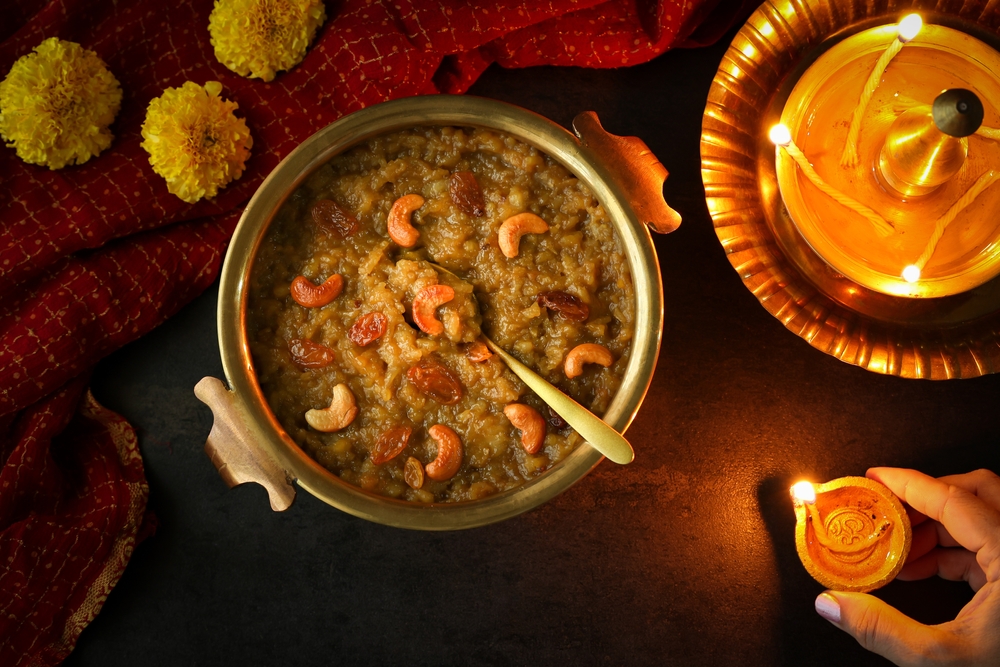
Image credit: Shutterstock Images.
Every year in January, the assamese women wear Mukhlas and perform folk dance and celebrate Bihu one day before the harvest festival. Uruka the communal feast follows the cultural performances. One dish that must feature in the feast is Till Pitha.
INGREDIENTS
Serves: 2 Cups
10 MINS
30 MINS
20 MINS
1 HR
10 MINS
30 MINS
20 MINS
1 HR
1 Cup raw rice
½ Cup moong daal
6 Tbsp ghee
1 Tbsp cashews
1 Tbsp raisins
1 Pinch edible camphor
1 Tsp cardamom powder
1 Tbsp coconut sliver (dry)
METHOD
1. In a large bowl, combine rice and daal, wash and soak for 30 minutes
2. Transfer to your Ultra Pressure Cooker, add 4 cups of water and cook for 10 minutes or till done.
3. Open the cooker when the pressure releases and add 2 Tbsp of ghee and mash the rice thoroughly.
4. In a pan melt the jaggery with a few tbsp of water, boil for a few minutes and filter to remove sediments.
5. Add this to the rice and mix well.
6. Add two more spoons of ghee and mix well.
7. In a tadka pan, add the remaining ghee and fry the coconut, cashew and raisins.
8. Add this to the rice.
9. Top with cardamom powder and edible camphor.
10. Combine well and serve with ghee.
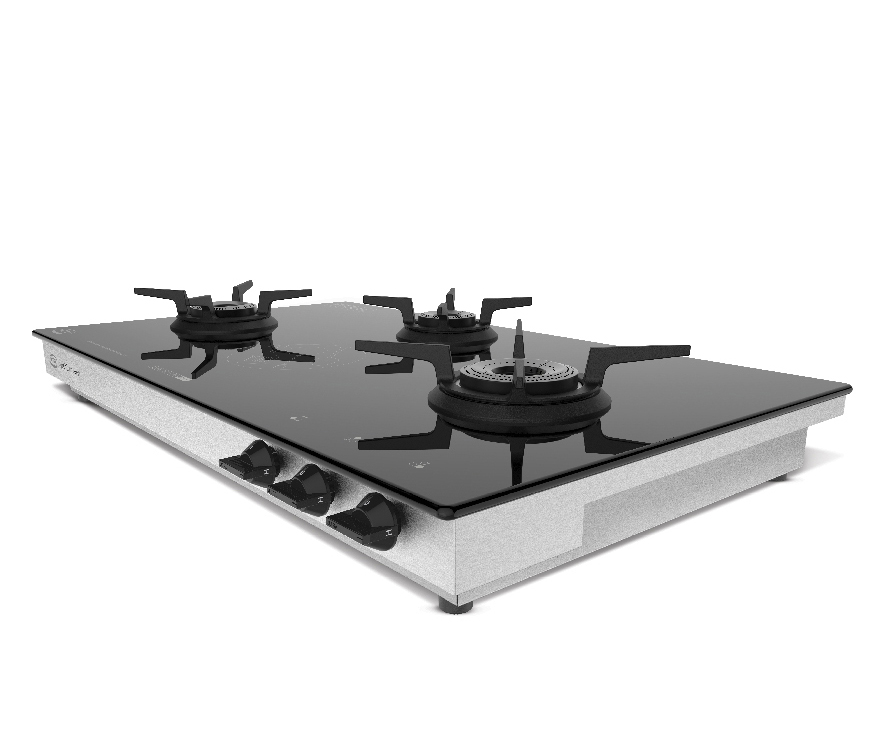
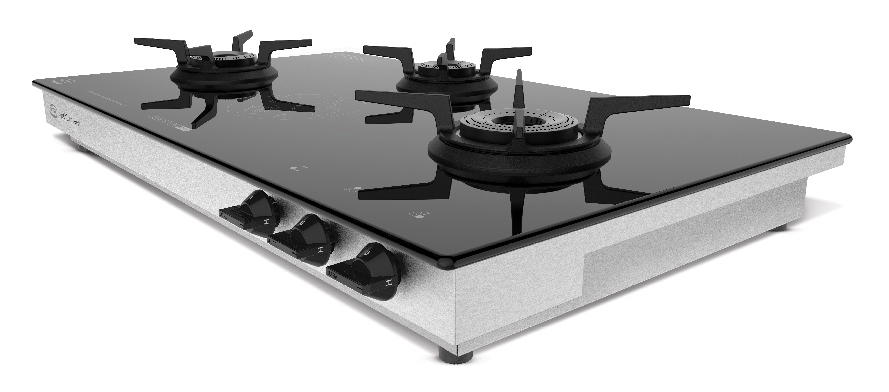
Elgi Ultra Optiflame
Gas savings, less cooking time and high safety are compelling reasons to choose the Ultra Optiflame gas stove.
70%+ GAS EFFICIENCY IN ALL BURNERS
Unique design for efficient air/gas mixing.* Verified and certified by Goverment Approved Lab.
8MM THICK TOUGHENED GLASS
More durable and safer than thinner glasses.
FAST COOKING
The burner unit assembly is optimised to produce more heat, by burning gas more efficiently by cooking fast without gas.
FORGED BRASS BURNERS
Stronger, safer and more efficient than ordinary cast burners.
SABAF FLAME FAILURE SAFETY DEVICE
Cuts off gas flow to the burner when flame goes off accidentally.
SPACIOUS DESIGN
Wide space between burners and a spacious top for easy cleaning and resting ladles.



